Session Summaries
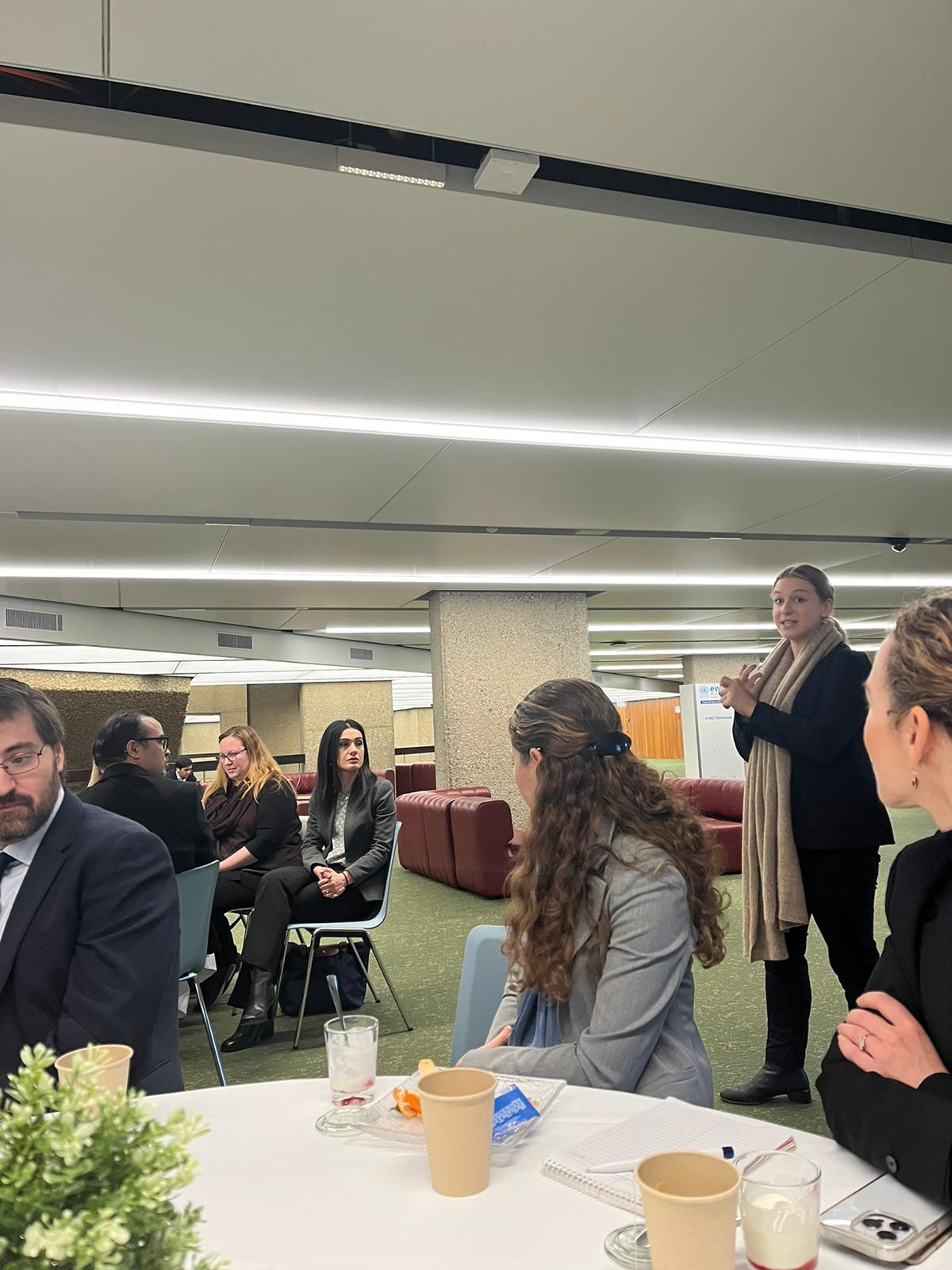
Enhancing trade and traceability in agri-food supply chain through SPS electronic certification
5 December, 11:30 – 13:00 CET
Alliance Deputy Director Macarena Torres Rossel participated in a panel highlighting the role of digital technologies in managing risk and creating efficient agri-food markets. The panel discussed the impact of electronic sanitary and phytosanitary certificates on traceability in agri-food supply chains.
Empowering women entrepreneurs in developing countries through digital trade and training,
6 December, 8:00 – 9:30 CET
Alliance Monitoring and Evaluation Lead Emily Skovran presented the Alliance’s initiative to boost MSME export potential in Cambodia at an off the record breakfast session with women entrepreneurs including UNCTAD eTrade advocates, representatives of international organisations, governments and the private sector. The session discussed the challenges women business leaders and workers face in accessing global markets and the role of technology in empowering women.
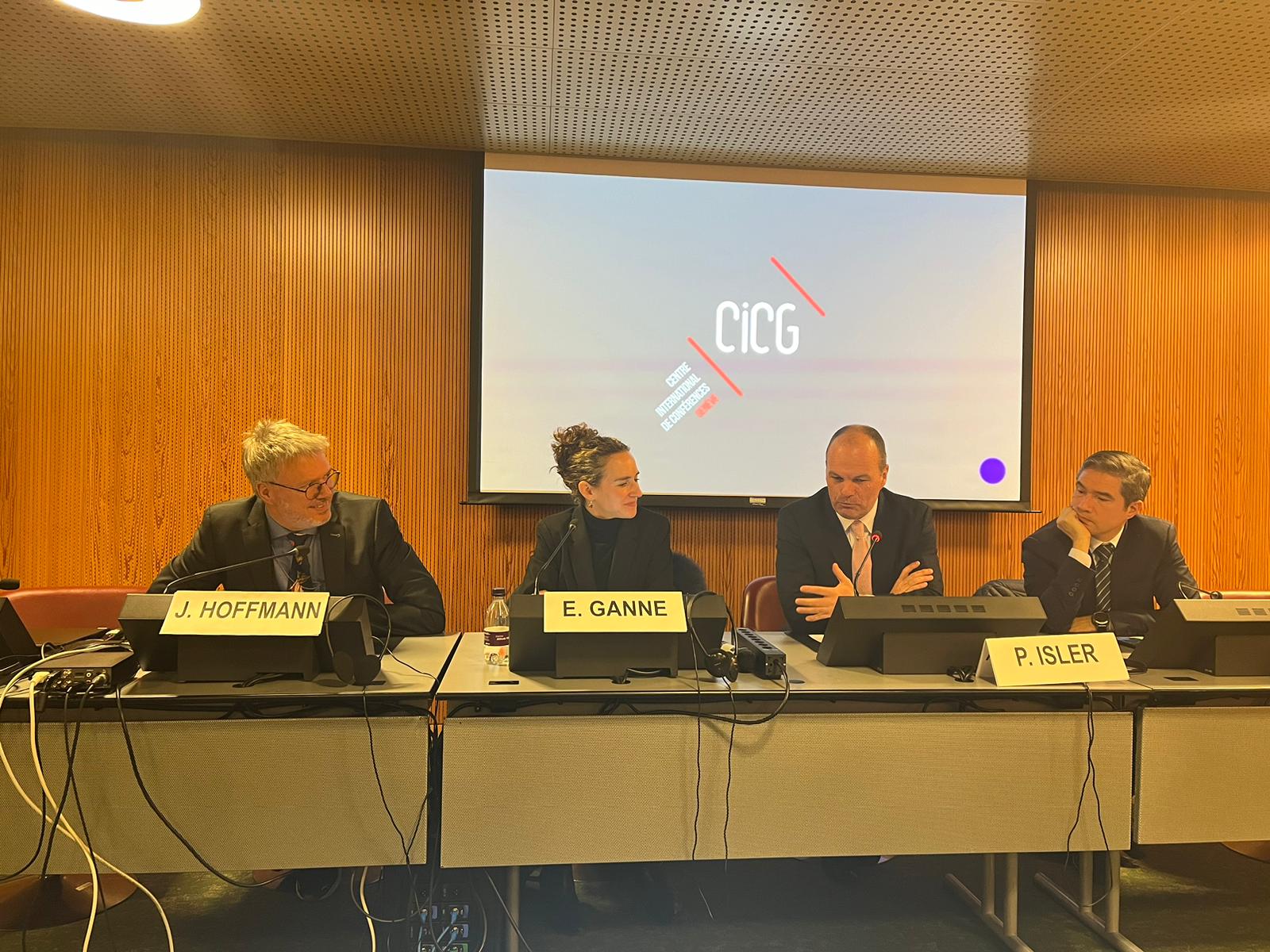
AI and the future of digital global supply chains
6 December, 11:30 – 13:00 CET
Alliance Director Philippe Isler was a panellist in a session discussing the transformative potential of artificial intelligence (AI) in revolutionising trade logistics. Panellists explored the efficiency gains offered by AI through route and logistics optimisation, enhanced demand forecasting, improved security and heightened supply chain transparency while noting barriers to adoption such as expertise gaps, regulatory challenges, and societal reluctance. The session underscored AI’s dual impact on developing countries—presenting opportunities for development but raising concerns about the digital divide.
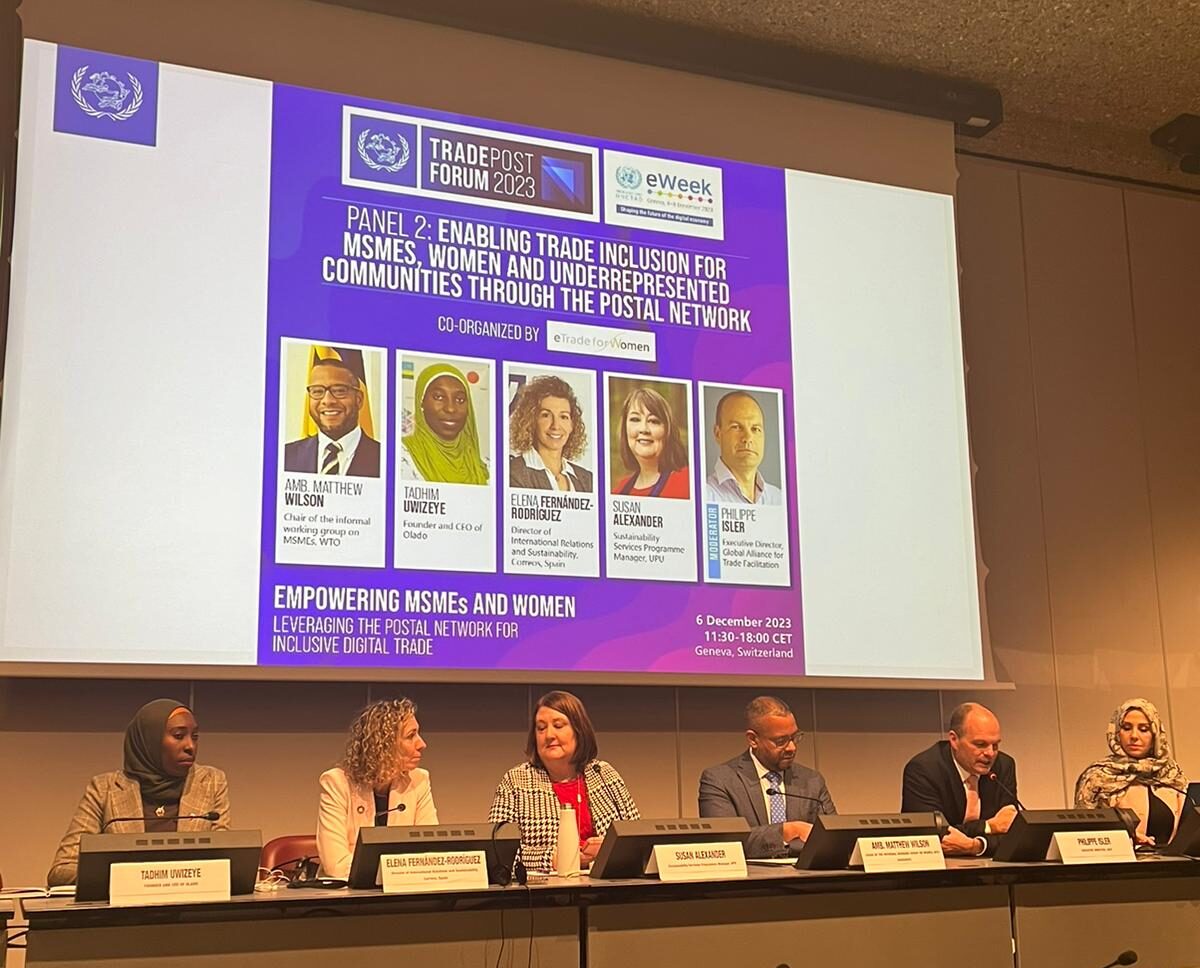 Enabling trade inclusion for MSMEs, women and underrepresented communities through the postal network
Enabling trade inclusion for MSMEs, women and underrepresented communities through the postal network
6 December, 15:00 – 16:30 CET
Alliance Director Philippe Isler moderated a panel discussion at the UPU TradePost Forum focusing on enabling trade inclusion for MSMEs, women, and underrepresented communities through the postal network. The key challenges identified for MSMEs were high shipping costs, limited digitalisation in the postal sector, and the need for access to training resources. Speakers highlighted the importance of supporting rural MSMEs, simplifying customs procedures, and promoting local products on international markets. The discussions also touched on gender disparities in MSME ownership, the role of postal services in the e-commerce revolution, and the UPU’s efforts in supporting digital transformation and gender equality.
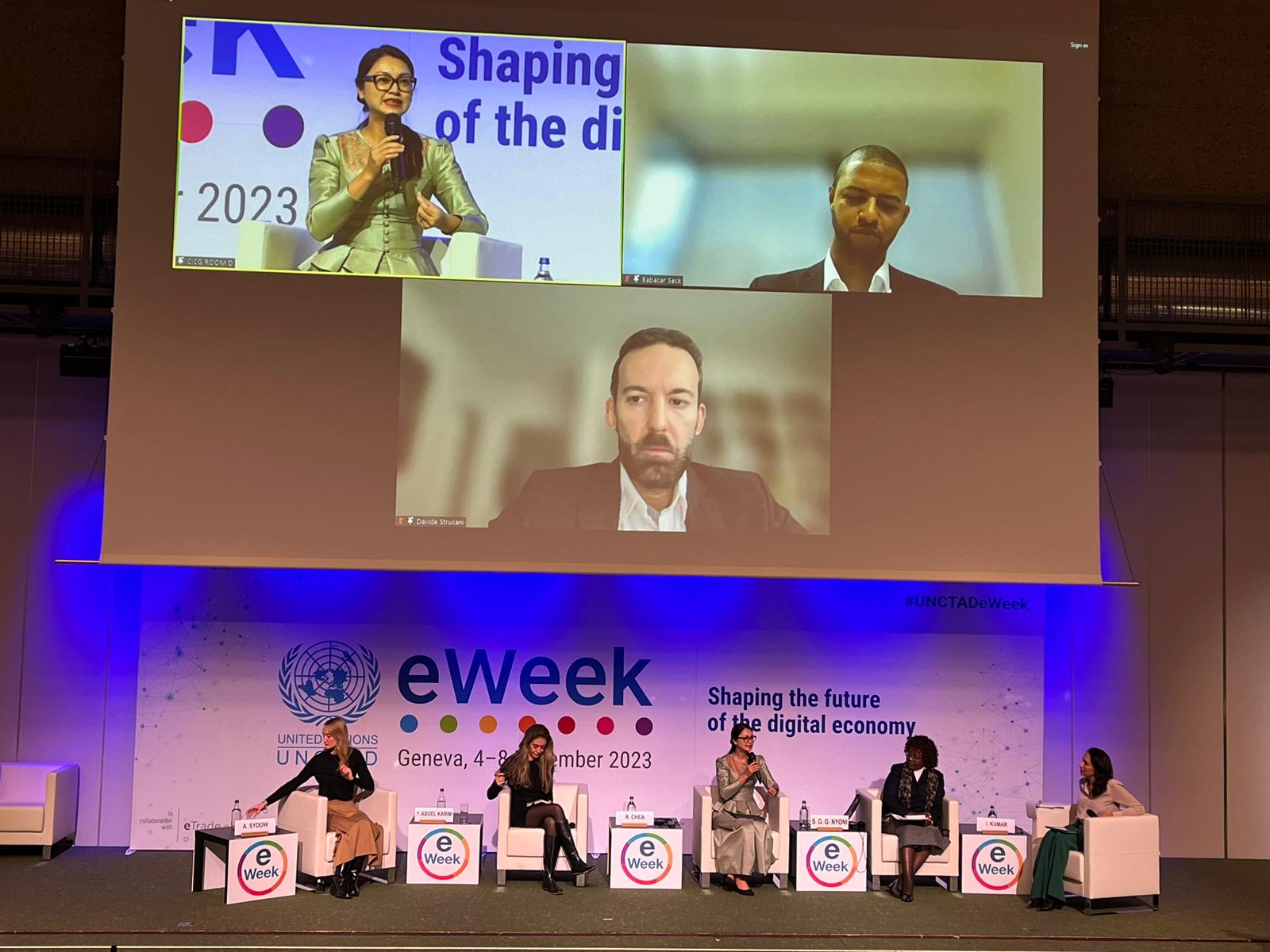 Boosting women’s digital entrepreneurship: Bridging the gender financing gap
Boosting women’s digital entrepreneurship: Bridging the gender financing gap
7 December, 15:00 – 16:30 CET
In a high-level panel, Chea Ratha, Secretary of State, Ministry of Commerce Cambodia, focused on the challenges and opportunities faced by women in digital entrepreneurship, with an emphasis on the gender financing gap. The panellists identified persistent barriers facing women such as the glass ceiling, limited access to STEM education, and difficulties in obtaining financing. The importance of community building, changing societal norms, and adopting gender lens investing practices were underscored as essential for empowering women entrepreneurs. The session concluded with a call for inclusive policies, increased representation in decision-making bodies, and tailored financial products to support women in digital entrepreneurship globally.
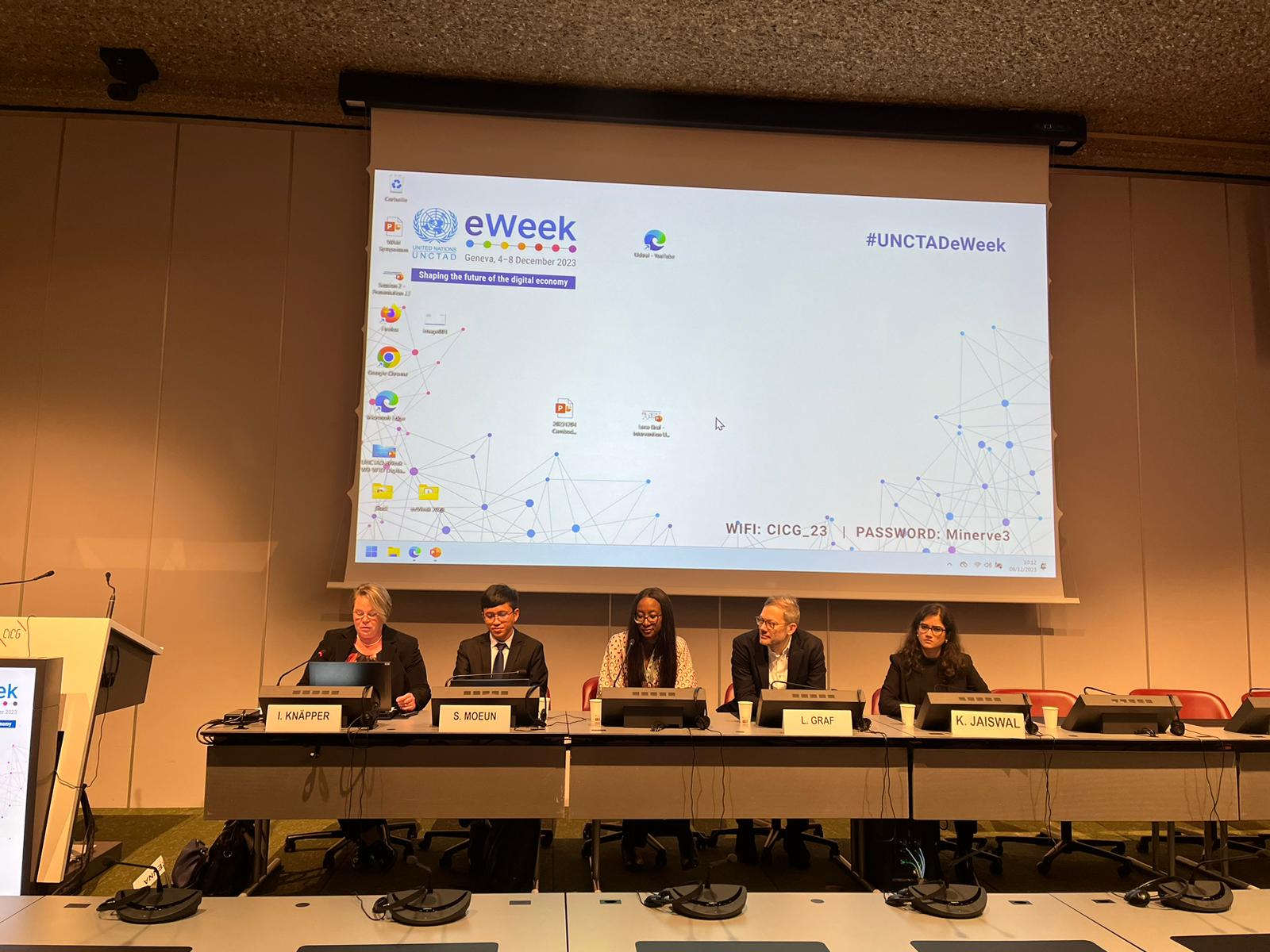 Embracing the Future of E-Commerce and AI now
Embracing the Future of E-Commerce and AI now
8 December, 10:00 – 11:30 CET
The Alliance’s Innovation Lead Ines Knäpper moderated a session that discussed the future of e-Commerce and AI. Panellists discussed the different ways to boost MSME participation in the e-Commerce boom – enhancing data availability, simplifying e-Commerce systems, designed targeted e-Commerce platforms etc. The speakers agreed that the disruptive impact of AI on the operational aspects of the supply chain will play a key role in defining the future of e-Commerce logistics.
